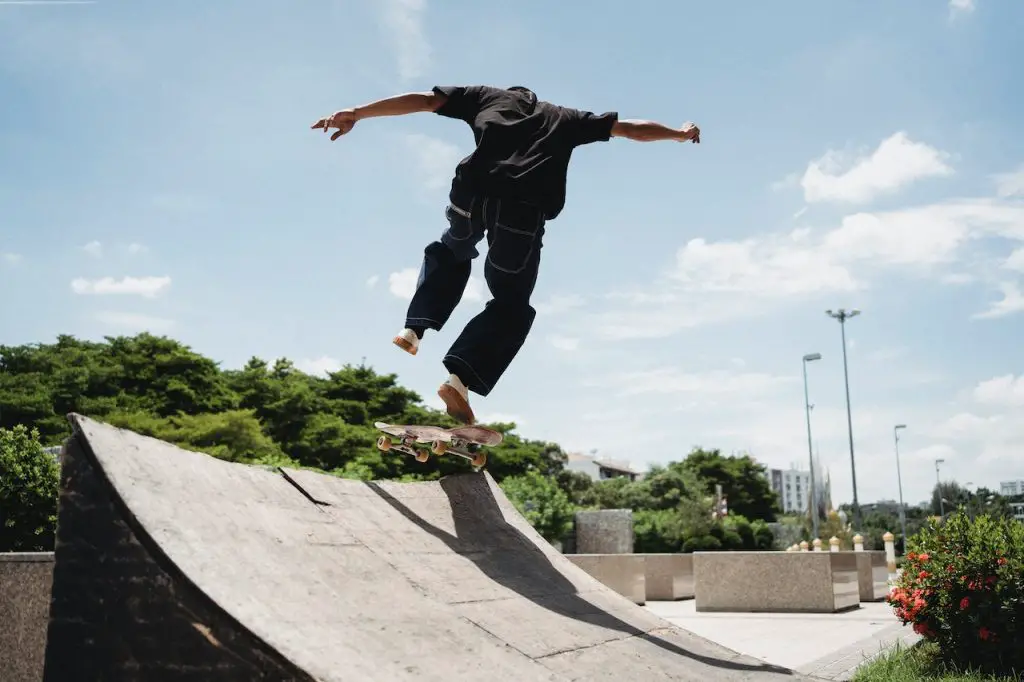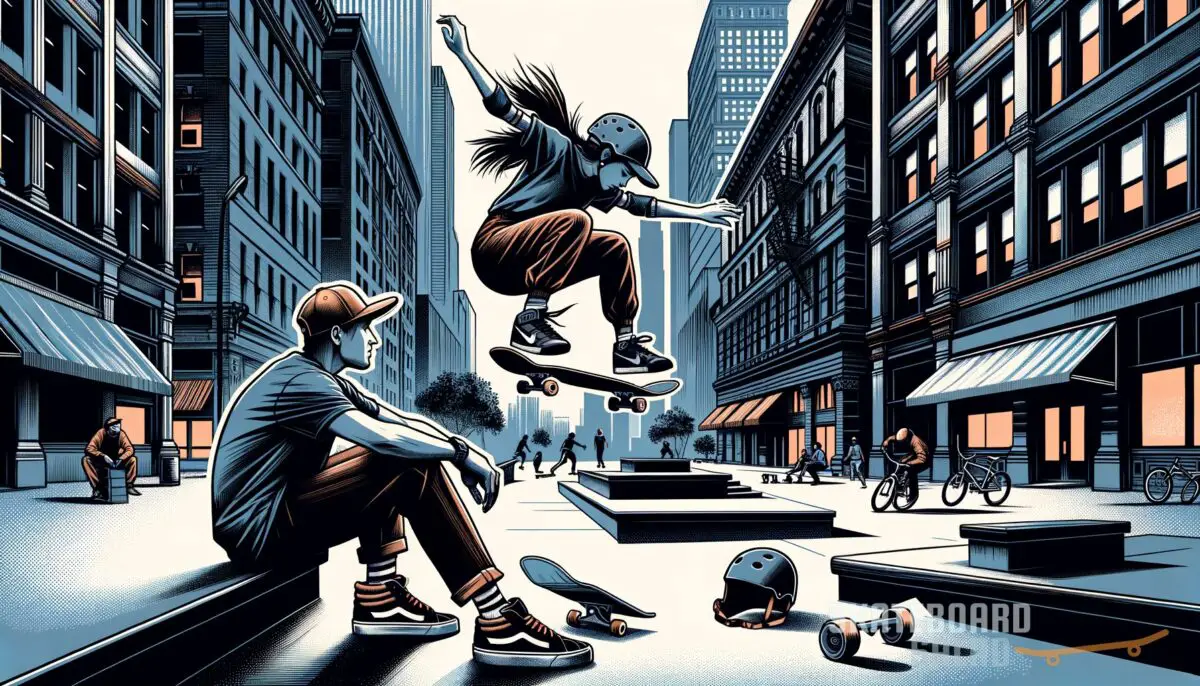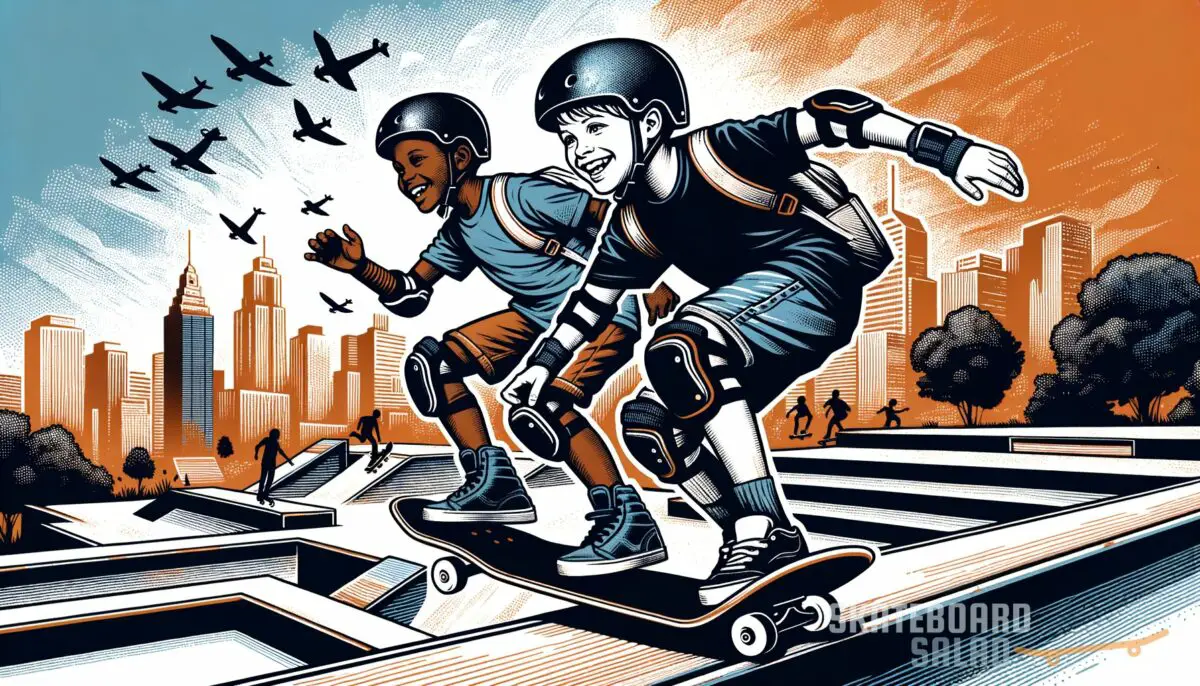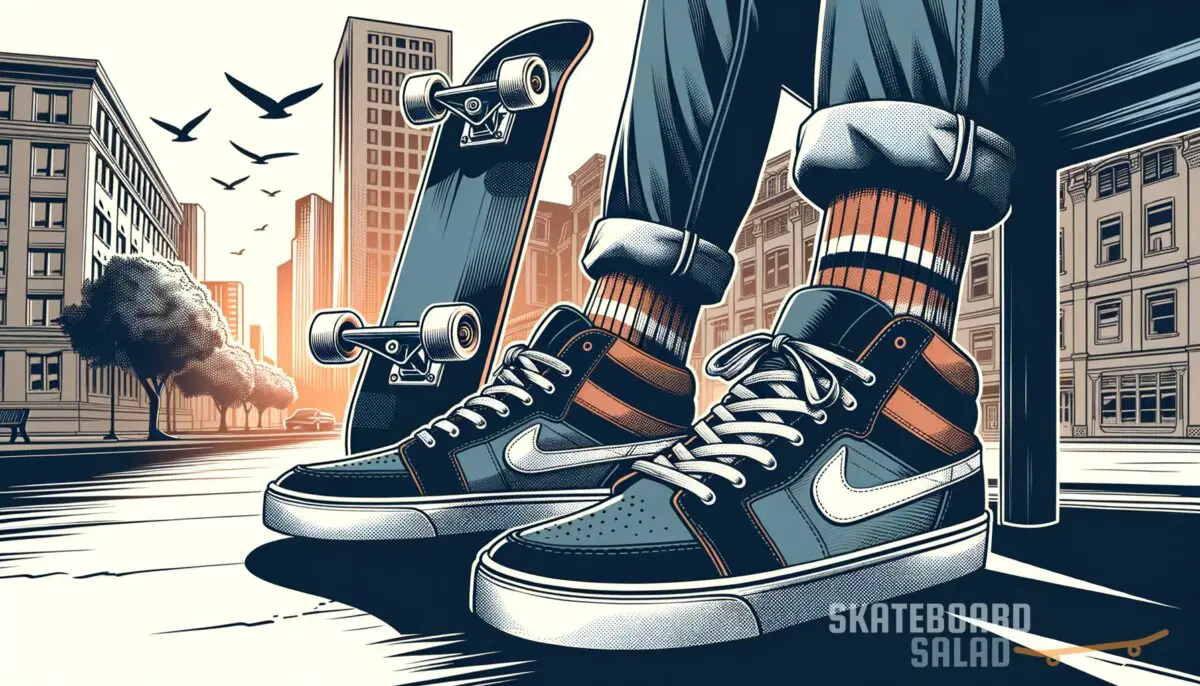What’s up, my fellow skaters? Today, we’re diving deep into the psychology of skateboarding. That’s right, we’re going to explore how this adrenaline-fueled activity can not only help you stay fit but also boost your mental health and creativity.
In this post, you’ll learn that skateboarding is much more than a sport. You’ll discover the science behind the mind-body connection in skateboarding and even clear up some common misconceptions about the sport. So, strap on your helmet, grab your board, and let’s get rolling!
What is the psychology of skateboarding?
Skateboarding has developed as a youth subculture emphasizing creativity and individuality, serving as an alternative to mainstream team sports that are more formally organized and largely controlled by adults. It provides an outlet for personal expression and a way to explore new challenges, push oneself outside their comfort zone, and learn from failure.

Furthermore, the psychology of fear plays a significant role in skateboarding. Fear is influenced not only by our own experiences but also by our observations of the experiences of others.
In an article, Dr. Prenoveau outlines how fear applies to skateboarding, detailing how we can learn to overcome fear and become more confident by embracing the positive experiences of others and viewing our own setbacks as learning opportunities. Thus, skateboarding can offer a unique combination of physical, creative, and mental challenges that promote personal growth and well-being.
Enjoi Whitey Panda Complete Skateboard

Enjoi Whitey Panda Complete Skateboard
How does skateboarding improve your mental health?
Skateboarding can positively impact our mental health in various ways. According to a study by the University of Southern California, skateboarding can improve mental health, foster community, and promote diversity and resilience. The study also highlighted the importance of diversity and gender equality in the skateboarding community.
Skateboarding can also create regulation in the lower domains of the brain, which can lead to positive changes in the higher regions of the brain. The sport provides high sensory stimuli and can also help regulate emotions. This can be especially effective for people who ruminate and overthink a lot, as skateboarding forces them to gain control over their thoughts.
Moreover, skateboarding can improve problem-solving skills and creativity. Skateboarding requires riders to constantly adapt to their surroundings and develop new tricks and lines, which can improve their cognitive abilities. This is because skateboarding engages the brain in a way that encourages creative problem-solving, spatial awareness, and balance.

What are some of the common misconceptions about skateboarding?
There are several common misconceptions about skateboarding. Two of the most common misconceptions about skateboarding are that it is dangerous and reckless and only for rebellious youth.
Like any sport or physical activity, there are risks involved in skateboarding, but with proper safety gear and precautions, these risks can be minimized. Most tricks may look dangerous, but skateboarders put a lot of time and effort into mastering these tricks so they can perform them safely.
…skateboarding can be enjoyed by people of all ages and backgrounds. It provides a sense of community and a vehicle for personal expression.
Another common misconception about skateboarding is that it is only for rebellious youth. Media portrayals of skateboarders have perpetuated this stereotype as laidback teens who skip school and cause trouble.
However, skateboarding can be enjoyed by people of all ages and backgrounds. It provides a sense of community and a vehicle for personal expression. There are also nonprofit organizations that promote skateboarding and help people in their community.
Tips on staying motivated in skateboarding
Skateboarding can be a challenging and demotivating activity at times, but there are ways to overcome this and stay motivated.
Find a community of fellow skateboarders who can offer support, advice, and encouragement. This can be achieved by visiting local skate shops and asking for advice or attending skateboarding events in your area. Getting feedback from more experienced skateboarders can also help beginners to identify strengths and weaknesses and set achievable goals.
Another way is to set goals and measure progress. This can help to build confidence and motivation as skills improve over time. Beginners can start by mastering the basics and gradually building their skills and abilities. Filming yourself can be a helpful way to analyze your technique and identify areas for improvement.
If you want even more tips and insights, watch this video called “Discussing Skateboarding with Neuroscientist Andrew Huberman” from the Jenkemmag YouTube channel.
Conclusion
Well, folks, we’ve reached the end of this wild ride through the psychology of skateboarding. So, did we answer all your burning questions about skateboarding psychology? Did you learn something new and exciting? Let me know in the comments section below. I promise to read and reply to every comment, like how a skateboarder commits to landing a trick after countless attempts.
Remember, if you found this article helpful, share it with a friend who could use some stoke. And don’t forget to check out my full blog for more tips and tricks on everything from shredding the gnar to living your best life.
I want to leave you with one last pun as we wrap things up. What do you call a skateboarder who always has a cold? A nosegrind! Thanks for reading, and keep on rolling, my friends!
Key takeaways
This article covered the psychology of skateboarding. Here are some key takeaways:
- Skateboarding can have positive effects on mental health, promoting community, diversity, and resilience.
- Skateboarding can help regulate emotions and improve brain functioning by creating regulation in the lower domains of the brain.
- In skateboarding, risks can be minimized with proper safety gear and precautions.
- Finding a community and setting goals are crucial tips for beginners in skateboarding psychology.
- Skateboarding offers a unique combination of physical, creative, and mental challenges that can provide a sense of purpose and well-being for those participating.















